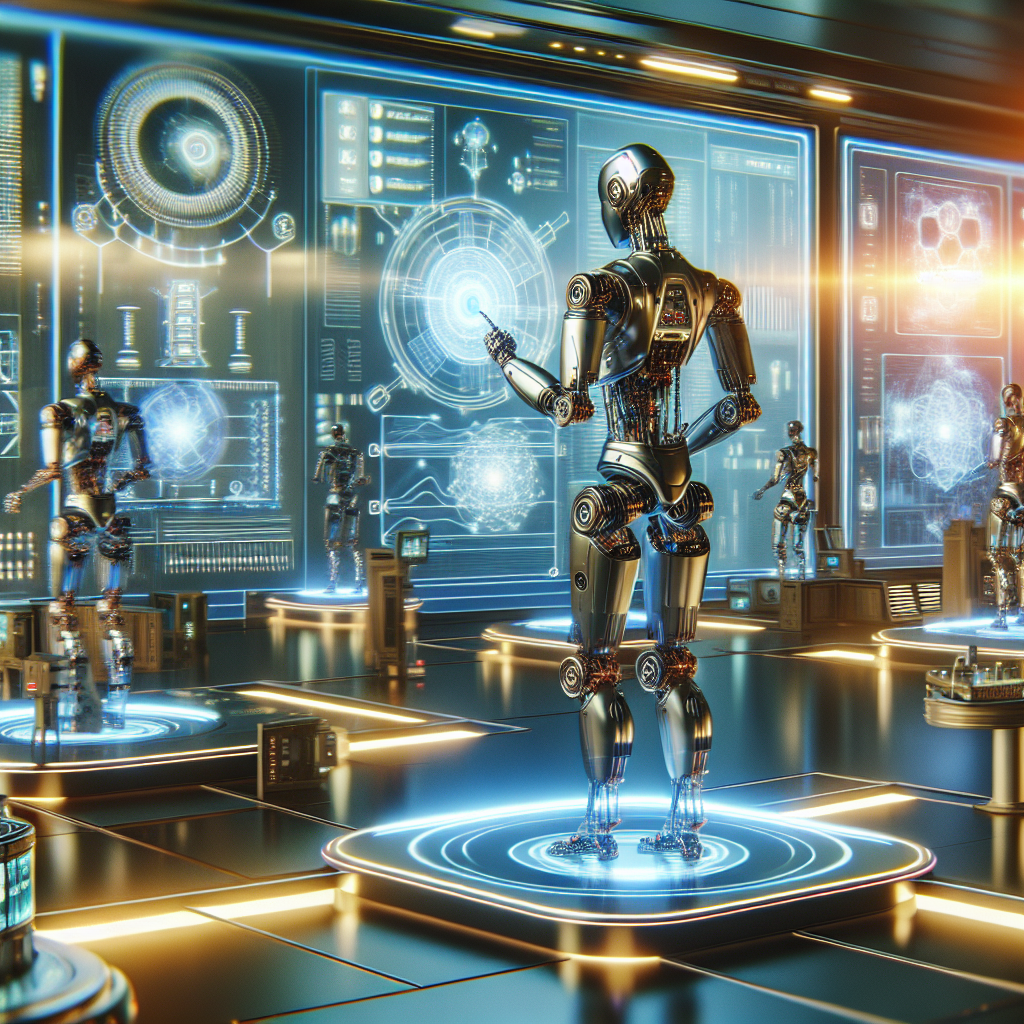The future of artificial intelligence (AI) in robotics is a topic that has been gaining increasing attention in recent years. As technological advancements continue to accelerate, we are seeing AI being integrated into a wide range of robotic applications, from autonomous vehicles to manufacturing robots and even household robots. The potential for AI to revolutionize the field of robotics is immense, and experts are already envisioning a future where robots are smarter, more autonomous, and more capable than ever before.
One of the key drivers behind the growing interest in AI-powered robotics is the rapid progress being made in machine learning and deep learning algorithms. These algorithms are allowing robots to learn from their experiences, adapt to new environments, and make decisions in real-time. This is enabling robots to perform tasks that were previously thought to be beyond their capabilities, such as navigating complex environments, recognizing objects, and even interacting with humans in a natural way.
Another factor contributing to the future of AI in robotics is the increasing availability of data. With the proliferation of sensors and other data-generating devices, robots are now able to gather vast amounts of information about their surroundings, which they can then use to make informed decisions. This data-driven approach is allowing robots to become more efficient and effective in a wide range of applications, from manufacturing to healthcare to agriculture.
One of the most exciting developments in the field of AI-powered robotics is the emergence of collaborative robots, or cobots. These robots are designed to work alongside humans in a shared workspace, performing tasks that require a high degree of dexterity and flexibility. Cobots are being used in a wide range of industries, from automotive manufacturing to healthcare, and are helping to improve productivity, safety, and efficiency in the workplace.
In the coming years, we can expect to see even more advancements in AI-powered robotics. Researchers are working on developing robots that can learn new tasks on the fly, adapt to changing environments, and even collaborate with other robots to achieve common goals. These robots will be able to work autonomously, without the need for constant human supervision, and will be capable of performing a wide range of tasks with a high degree of precision and efficiency.
Of course, with these advancements also come challenges. As robots become more autonomous and capable, there are concerns about the impact that this will have on the workforce. Will robots replace human workers in certain industries, leading to job losses and economic disruption? How can we ensure that robots are programmed ethically and safely, so that they do not pose a risk to humans?
These are important questions that will need to be addressed as we move towards a future where AI-powered robotics is increasingly integrated into our daily lives. However, there is also great potential for AI-powered robotics to bring about positive change, such as improving efficiency, safety, and quality in various industries, and enabling humans to focus on more creative and strategic tasks.
In conclusion, the future of AI in robotics is bright, with the potential for robots to become smarter, more autonomous, and more capable than ever before. As researchers continue to make advancements in machine learning and data-driven algorithms, we can expect to see robots that are able to perform a wide range of tasks with a high degree of precision and efficiency. While there are challenges and concerns that need to be addressed, there is also great potential for AI-powered robotics to bring about positive change in various industries and improve the quality of our lives.
FAQs:
Q: Will robots replace human workers in certain industries?
A: While it is true that robots are becoming more capable and autonomous, there is no evidence to suggest that they will completely replace human workers in certain industries. Instead, robots are likely to complement human workers, performing tasks that are repetitive, dangerous, or require a high degree of precision, while humans focus on more creative and strategic tasks.
Q: How can we ensure that robots are programmed ethically and safely?
A: Ensuring that robots are programmed ethically and safely is a critical concern as AI-powered robotics becomes more prevalent. This will require collaboration between researchers, policymakers, and industry stakeholders to develop guidelines and regulations that govern the use of robots in various applications. Additionally, it is important for developers to prioritize safety and ethical considerations in the design and programming of robots.
Q: What are some potential applications of AI-powered robotics in the future?
A: AI-powered robotics has the potential to revolutionize a wide range of industries, from manufacturing to healthcare to agriculture. Some potential applications include autonomous vehicles, collaborative robots in manufacturing, robotic surgery, and robotic assistants in elderly care. The possibilities are endless, and researchers are constantly exploring new ways to integrate AI into robotics to improve efficiency, safety, and quality in various industries.

